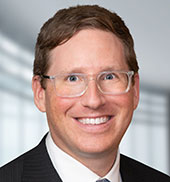Judgment debtors often try to use the Fifth Amendment’s privilege against self-incrimination to avoid post-judgment discovery of their assets and income. However, the U.S. District Court for the Eastern District of Missouri ruled last year that when the judgment debtor is a trust, neither the trust nor its individual trustees may invoke the privilege against self-incrimination, and the trust must comply with post-judgment discovery. The decision in Bank of America, N.A. v. Roberts, is important for banks and other creditors because individuals often hold their assets in trusts. And with this decision, a federal court has strongly rejected the expansion of the use of the Fifth Amendment by individuals trying to avoid collection from those trusts.
The Fifth Amendment to the U.S. Constitution prohibits the government from compelling individuals to incriminate themselves. Its purpose was to protect the citizenry against the vast resources of the state and its power to prosecute and incarcerate. While the existence of the Fifth Amendment serves an important and justified check on the power of the government, its protections have been used for a wholly different and unintended purpose by judgment debtors. Judgment debtors are invoking the privilege against self-incrimination to avoid responding to post-judgment discovery requests, thwarting the ability of judgment creditors to discover assets and income and collect on judgments.
In Roberts, the judgment debtors were entities formed as revocable inter vivos trusts under Missouri law. The trustees were the settlors and sole trustees of their respective trusts. When served with post-judgment discovery, the trusts asserted the privilege against self-incrimination under the Fifth Amendment. They argued that responding to the discovery requests could lead to the individual trustees’ liability for unpaid taxes. After the trusts asserted the privilege, the judgment creditor filed a motion to compel discovery. It contended that the privilege does not apply to the trusts.
The court agreed with the judgment creditor. The court first noted that the Missouri and federal privileges against self-incrimination are coextensive, although Missouri courts have identified a more stringent approach to the evidentiary burdens. The court then thoroughly outlined the extent of the Fifth Amendment privilege and how it should be invoked. More importantly for this case, the court identified who may invoke the privilege. The court explained that the Fifth Amendment privilege is personal and meant to protect only individuals. Under the so-called “collective entity” doctrine, corporations or other collective entities cannot claim the privilege against self-incrimination. Moreover, the collective entity doctrine applies not only to the entity itself, but also to entity’s custodians of records with respect to the act of producing documents.
The trusts argued that the collective entity doctrine was inapplicable to them because they were essentially settlor controlled trusts that were indistinguishable from the individual settlors, especially because the trusts did not file separate tax returns. The court disagreed. It reiterated that neither the size of the entity nor its tax status is important. Rather, the determinative factor is whether the application of the collective entity doctrine is consistent with its underlying rationale.
The court focused on the settlors’ voluntary and beneficial decision to create a trust and the concomitant obligations arising from the creation of the trust, such as the requirement to respond to discovery requests. Applying these principles, the court reasoned that because the settlors chose to use the benefits of creating a trust, placing assets in a trust, and acting as trustees, they must also be bound by the consequences of forming such entities. In turn, the court ruled that neither the trusts nor its individual trustees could avoid producing the trusts’ records as such records cannot be the subject of the personal privilege against self-incrimination.
Note: Thompson Coburn represented Bank of America in the case.






